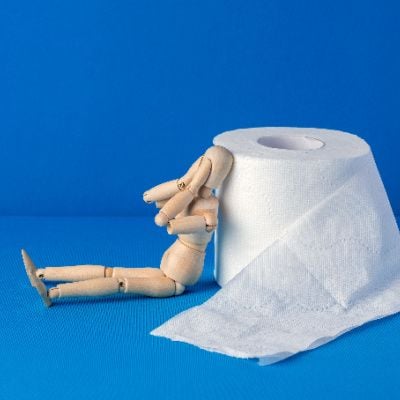 What is Diarrhea?
What is Diarrhea?
Diarrhea is a condition that is characterized by loose, watery stools. Diarrhea typically lasts for a few days and can resolve on its own. However, if you are experiencing persistent diarrhea or bloody stool, it is important to seek medical attention. Diarrhea can be uncomfortable and may cause dehydration, so it is important to drink plenty of fluids and avoid strenuous activity while you are experiencing symptoms.
What are the Causes of Diarrhea?
There are many potential causes of diarrhea. Some common causes include:
- Infections: Diarrhea can be caused by viral (most common), bacterial, or parasitic infections.
- Food allergies: Diarrhea can be a symptom of food allergies or intolerances, such as lactose intolerance.
- Stress: Diarrhea can be triggered by stress or anxiety.
- Medications: Diarrhea is a common side effect of certain medications, such as antibiotics.
- Diarrhea can also be a symptom of other medical conditions, such as Crohn's disease, ulcerative colitis, celiac disease, or irritable bowel syndrome.
What are the Symptoms of Diarrhea?
Diarrhea is watery or loose stool. Depending on the cause, other symptoms that may be associated with diarrhea can include:
- Nausea
- Vomiting
- Cramping
- Bloating
- Gas
- Abdominal Pain
- Fever
- Chills
- Thirst
- Bloody stool
Types of Diarrhea
There are two main types of diarrhea: acute and chronic.
- Acute Diarrhea: Acute diarrhea is typically caused by an infection or other short-term issue. It usually lasts for a few days and resolves on its own.
- Chronic Diarrhea: Chronic diarrhea is characterized by loose stools that last for more than four weeks. It may be caused by a chronic illness, such as Crohn's disease or irritable bowel syndrome.
How Is Diarrhea Treated?
Treatment for diarrhea will vary depending on the underlying cause. Some of the most common treatments include:
- Antibiotics
- Antidiarrheal medications which are sold over the counter
- Probiotics
- Drinking plenty of fluids
If you have diarrhea caused by a viral infection, it will typically resolve on its own within a few days. However, if you have diarrhea caused by a bacterial infection, you may need antibiotics to clear the infection. With more severe diarrhea, you may need to be hospitalized for intravenous (IV) fluids and other treatments. Diarrhea caused by allergies or intolerances can be treated by avoiding the offending food or substance.
When to See a Doctor about Diarrhea
Diarrhea can be a nuisance, but it is usually not serious. However, if you have severe diarrhea, blood in the stool, dehydration, persistent fever, or severe abdominal pain, you should seek medical attention. These may be signs of a more serious condition. If you are concerned about your diarrhea, or if it is not improving after a few days, be sure to talk to your doctor. Diarrhea is a common condition, but treatments are available to help you feel better. Your doctor may decide to perform blood or stool tests to help diagnose the cause of your diarrhea. Sometimes a colonoscopy is indicated, which allows your doctor to visualize the lining of your digestive tract.
Home Remedies for Diarrhea That May Help
- Drink clear fluids, such as water, broth, or diluted juices, to stay hydrated
- Eat bland foods that are easy to digest, such as rice, bananas, toast, and crackers.
- Avoid dairy products, spicy foods, fatty foods, and caffeine
Prevention Tips for Avoiding Diarrhea
There are some things you can do to help prevent diarrhea, such as:
- Wash your hands thoroughly and often, especially after using the restroom
- Access to safe drinking water
- Adequate sanitation
- Practicing good personal and food hygiene
There are many possible causes of diarrhea, and it is important to see a doctor to rule out any serious conditions. However, many simple lifestyle changes can help reduce the frequency and severity of episodes. These include drinking plenty of fluids, avoiding spicy or greasy foods, and taking probiotics.
Disclaimer:
The information on this website is provided for educational and information purposes only and is not medical advice. Always consult with a licensed medical provider and follow their recommendations regardless of what you read on this website. If you think you are having a medical emergency, dial 911 or go to the nearest emergency room. Links to other third-party websites are provided for your convenience only. If you decide to access any of the third-party websites, you do so entirely at your own risk and subject to the terms of use for those websites. Neither Emanuel Kontos, DMD, nor any contributor to this website, makes any representation, express or implied, regarding the information provided on this website or any information you may access on a third-party website using a link. Use of this website does not establish a doctor-patient relationship. If you would like to request an appointment with a health care provider, please call our office at (727) 939-2099.
 What is Diarrhea?
What is Diarrhea?
